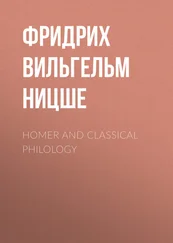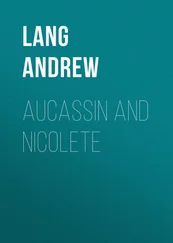Andrew Lang - Homer and His Age
Здесь есть возможность читать онлайн «Andrew Lang - Homer and His Age» — ознакомительный отрывок электронной книги совершенно бесплатно, а после прочтения отрывка купить полную версию. В некоторых случаях можно слушать аудио, скачать через торрент в формате fb2 и присутствует краткое содержание. Жанр: foreign_antique, foreign_prose, на английском языке. Описание произведения, (предисловие) а так же отзывы посетителей доступны на портале библиотеки ЛибКат.
- Название:Homer and His Age
- Автор:
- Жанр:
- Год:неизвестен
- ISBN:нет данных
- Рейтинг книги:5 / 5. Голосов: 1
-
Избранное:Добавить в избранное
- Отзывы:
-
Ваша оценка:
- 100
- 1
- 2
- 3
- 4
- 5
Homer and His Age: краткое содержание, описание и аннотация
Предлагаем к чтению аннотацию, описание, краткое содержание или предисловие (зависит от того, что написал сам автор книги «Homer and His Age»). Если вы не нашли необходимую информацию о книге — напишите в комментариях, мы постараемся отыскать её.
Homer and His Age — читать онлайн ознакомительный отрывок
Ниже представлен текст книги, разбитый по страницам. Система сохранения места последней прочитанной страницы, позволяет с удобством читать онлайн бесплатно книгу «Homer and His Age», без необходимости каждый раз заново искать на чём Вы остановились. Поставьте закладку, и сможете в любой момент перейти на страницу, на которой закончили чтение.
Интервал:
Закладка:
Andrew Lang
Homer and His Age
PREFACE
In Homer and the Epic , ten or twelve years ago, I examined the literary objections to Homeric unity. These objections are chiefly based on alleged discrepancies in the narrative, of which no one poet, it is supposed, could have been guilty. The critics repose, I venture to think, mainly on a fallacy. We may style it the fallacy of "the analytical reader." The poet is expected to satisfy a minutely critical reader, a personage whom he could not foresee, and whom he did not address. Nor are "contradictory instances" examined – that is, as Blass has recently reminded his countrymen, Homer is put to a test which Goethe could not endure. No long fictitious narrative can satisfy "the analytical reader."
The fallacy is that of disregarding the Homeric poet's audience. He did not sing for Aristotle or for Aristarchus, or for modern minute and reflective inquirers, but for warriors and ladies. He certainly satisfied them; but if he does not satisfy microscopic professors, he is described as a syndicate of many minstrels, living in many ages.
In the present volume little is said in defence of the poet's consistency. Several chapters on that point have been excised. The way of living which Homer describes is examined, and an effort is made to prove that he depicts the life of a single brief age of culture. The investigation is compelled to a tedious minuteness, because the points of attack – the alleged discrepancies in descriptions of the various details of existence – are so minute as to be all but invisible.
The unity of the Epics is not so important a topic as the methods of criticism. They ought to be sober, logical, and self-consistent. When these qualities are absent, Homeric criticism may be described, in the recent words of Blass, as "a swamp haunted by wandering fires, will o' the wisps."
In our country many of the most eminent scholars are no believers in separatist criticism. Justly admiring the industry and erudition of the separatists, they are unmoved by their arguments, to which they do not reply, being convinced in their own minds. But the number and perseverance of the separatists make on "the general reader" the impression that Homeric unity is chose jugée , that scientia locuta est , and has condemned Homer. This is far from being the case: the question is still open; "science" herself is subject to criticism; and new materials, accruing yearly, forbid a tame acquiescence in hasty theories.
May I say a word to the lovers of poetry who, in reading Homer, feel no more doubt than in reading Milton that, on the whole, they are studying a work of one age, by one author? Do not let them be driven from their natural impression by the statement that Science has decided against them. The certainties of the exact sciences are one thing: the opinions of Homeric commentators are other and very different things. Among all the branches of knowledge which the Homeric critic should have at his command, only philology, archaeology, and anthropology can be called "sciences"; and they are not exact sciences: they are but skirmishing advances towards the true solution of problems prehistoric and "proto-historic."
Our knowledge shifts from day to day; on every hand, in regard to almost every topic discussed, we find conflict of opinions. There is no certain scientific decision, but there is the possibility of working in the scientific spirit, with breadth of comparison; consistency of logic; economy of conjecture; abstinence from the piling of hypothesis on hypothesis.
Nothing can be more hurtful to science than the dogmatic assumption that the hypothesis most in fashion is scientific.
Twenty years ago, the philological theory of the Solar Myth was preached as "scientific" in the books, primers, and lectures of popular science. To-day its place knows it no more. The separatist theories of the Homeric poems are not more secure than the Solar Myth, "like a wave shall they pass and be passed."
When writing on "The Homeric House" (Chapter X.) I was unacquainted with Mr. Percy Gardner's essay, "The Palaces of Homer" ( Journal of Hellenic Studies , vol. iii. pp. 264-282). Mr. Gardner says that Dasent's plan of the Scandinavian Hall "offers in most respects not likeness, but a striking contrast to the early Greek hall." Mr. Monro, who was not aware of the parallel which I had drawn between the Homeric and Icelandic houses, accepted it on evidence more recent than that of Sir George Dasent. Cf. his Odyssey , vol. ii. pp. 490-494.
Mr. R. W. Raper, of Trinity College, Oxford, has read the proof sheets of this work with his habitual kindness, but is in no way responsible for the arguments. Mr. Walter Leaf has also obliged me by mentioning some points as to which I had not completely understood his position, and I have tried as far as possible to represent his ideas correctly. I have also received assistance from the wide and minute Homeric lore of Mr. A. Shewan, of St. Andrews, and have been allowed to consult other scholars on various points.
The first portion of the chapter on "Bronze and Iron" appeared in the Revue Archéologique for April 1905, and the editor, Monsieur Salomon Reinach, obliged me with a note on the bad iron swords of the Celts as described by Polybius.
The design of men in three shields of different shapes, from a Dipylon vase, is reproduced, with permission, from the British Museum Guide to the Antiquities of the Iron Age ; and the shielded chessmen from Catalogue of Scottish Society of Antiquaries. Thanks for the two ships with men under shield are offered to the Rev. Mr. Browne, S.J., author of Handbook of Homeric Studies (Longmans). For the Mycenaean gold corslet I thank Mr. John Murray (Schliemann's Mycenae and Tiryns), and for all the other Mycenaean illustrations Messrs. Macmillan and Mr. Leaf, publishers and author of Mr. Leaf's edition of the Iliad .
CHAPTER I
The aim of this book is to prove that the Homeric Epics, as wholes, and apart from passages gravely suspected in antiquity, present a perfectly harmonious picture of the entire life and civilisation of one single age. The faint variations in the design are not greater than such as mark every moment of culture, for in all there is some movement; in all, cases are modified by circumstances. If our contention be true, it will follow that the poems themselves, as wholes, are the product of a single age, not a mosaic of the work of several changeful centuries.
This must be the case – if the life drawn is harmonious, the picture must be the work of a single epoch – for it is not in the nature of early uncritical times that later poets should adhere, or even try to adhere, to the minute details of law, custom, opinion, dress, weapons, houses, and so on, as presented in earlier lays or sagas on the same set of subjects. Even less are poets in uncritical times inclined to "archaise," either by attempting to draw fancy pictures of the manners of the past, or by making researches in graves, or among old votive offerings in temples, for the purpose of "preserving local colour." The idea of such archaising is peculiar to modern times. To take an instance much to the point, Virgil was a learned poet, famous for his antiquarian erudition, and professedly imitating and borrowing from Homer. Now, had Virgil worked as a man of to-day would work on a poem of Trojan times, he would have represented his heroes as using weapons of bronze. {Footnote: Looking back at my own poem, Helen of Troy (1883), I find that when the metal of a weapon is mentioned the metal is bronze.} No such idea of archaising occurred to the learned Virgil. It is "the iron" that pierces the head of Remulus ( Aeneid , IX. 633); it is "the iron" that waxes warm in the breast of Antiphates (IX. 701). Virgil's men, again, do not wear the great Homeric shield, suspended by a baldric: AEneas holds up his buckler ( clipeus ), borne "on his left arm" (X. 26 i). Homer, familiar with no buckler worn on the left arm, has no such description. When the hostile ranks are to be broken, in the Aeneid it is "with the iron" (X. 372), and so throughout.
Читать дальшеИнтервал:
Закладка:
Похожие книги на «Homer and His Age»
Представляем Вашему вниманию похожие книги на «Homer and His Age» списком для выбора. Мы отобрали схожую по названию и смыслу литературу в надежде предоставить читателям больше вариантов отыскать новые, интересные, ещё непрочитанные произведения.
Обсуждение, отзывы о книге «Homer and His Age» и просто собственные мнения читателей. Оставьте ваши комментарии, напишите, что Вы думаете о произведении, его смысле или главных героях. Укажите что конкретно понравилось, а что нет, и почему Вы так считаете.












